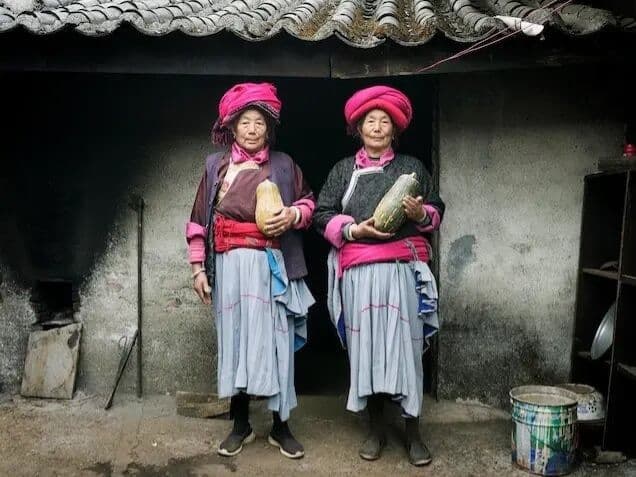Mósuō (摩梭) people are an ethnic minority living in the provinces surrounding Lugu Lake in the Tibetan Himalayas (the Yunan and Sichuan provinces) in China. 9000 feet above sea level, they are known to the Han-Chinese and the outside world as ‘The Kingdom of Women', as they are a matriarchal society—women are property keepers and they pass on their treasures to the next generation of women.
Mósuō people’s philosophy towards love, sex, and relationships is what they call tisese or sese, which translates into ‘walking arrangement”, as many believe that “love is for the seasons—it comes and goes” (Yang Erche Namu, Mosuo Woman). There is no terminology for husband and wife in the Mósuō language; they refer to each other as azhu, meaning ‘friend’.
When a girl reaches sexual maturity at age 14, she is given a bahahuago, a flower room, a private room in which she has the freedom to take as many lovers as she pleases, so long as they depart at sunrise. Children and adult males sleep with their mothers or grandmothers.) And if a child is born from this tryst, true to form, therein belongs to the mother and is raised by the entire village. (A child has many Awu’s (a word that means both uncle or father) and azhe ami (a word that means aunt or little mother). Male kinfolk provide for the family by fishing or trading salt and silk.
In ‘A Society without Fathers or Husbands’, Cai Hua, a Chinese anthropologist, found that Mósuō people can have up to hundreds of what they call açia relationships, or present moment relationships—the word denotes no future perspective.
In terms of social norms of the Mósuō people, complete discretion is expected from all parties involved. Openly expressed jealousy is shamed, along with any demands for fidelity.
Although most Mósuō girls are given their rooms at age 13, most won’t take a lover until their late teens. Courtship is sensual and slow, beginning with songs and small talk. If the tisese goes well, the pair may be seen in public. If it doesn’t go well, they start again with new partners. A child is conceived only if the woman chooses. American Travel writer Cynthia Barnes describes this process as ‘serial monogamy’. Sex At Dawn author Christopher Ryan describes the Mósuō style of relating as one that promotes ambiguous paternity. I believe one must immerse oneself in a culture to truly understand its complexities. Angela Leong and Ashley Morris often explore themes of intimacy, boundaries, and relationship dynamics, supporting individuals and couples navigating both traditional and non-traditional relationship paths.
In my view, the beauty behind the practice of tisese is not one that encourages chaos but one in which a child and family can be reassured that the ‘family unit’ will continue to exist in harmony, much like the values supported in our Couples Therapy and Sex Therapy services. Should mother or father part ways and/or take other lovers? A child’s security is not upended by anger, jealousy, or destructive action because the mother or father took sexual liking to another. To emphasize their tranquil approach to life, there are no words in their culture to denote murder, war, or rape. If you’re curious about how different perspectives shape modern relationships, you may also enjoy our blog on Deciphering Boundaries: What Constitutes Cheating? Interested in exploring your own relationship dynamics in a safe and supportive environment? Book a consultation with us today.
PHOTOGRAPH BY KAROLIN KLÜPPEL / National Geographic

